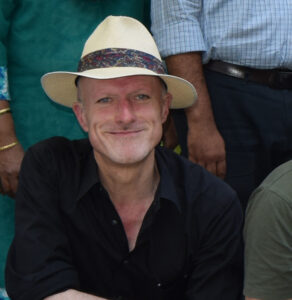Article Summary by Jonathan Coope
Healthcare often tends to be compartmentalized as something quite separate from issues of ecology and ecological sustainability. Yet health impacts of global warming and other environmental problems alert us to the fact that health and the fate of the biosphere are inextricably related and always have been.
Yet western modernity, for a certain period in its history, has often tended to overlook that fact. And sometimes it does so still.
Now—with recognition of relationships between degradation of ecosystems and the emergence of disease pandemics such as Covid-19, and health consequences of climate crisis—such compartmentalization of human health appears increasingly untenable.
A more ecologically dimensioned medical humanities thus appears both timely and urgent.
Read the article on the Medical Humanities journal website: https://mh.bmj.com/content/47/1/123
 Jonathan recently completed a two-year Medical Research Council, AHRC and GCRF funded Research Fellowship as part of a £200K theatre and mental health project, which he co-devised, based in Pune in India.
Jonathan recently completed a two-year Medical Research Council, AHRC and GCRF funded Research Fellowship as part of a £200K theatre and mental health project, which he co-devised, based in Pune in India.
Much of Jonathan’s research focuses on the ecological dimensions of mental health and the psychological dimensions of ecology; he served on the editorial board of the European Journal of Ecopsychology and contributed to two recent special issues of Ecopsychology—on ‘Indigenous decolonization and ecopsychology’ and ‘wisdom traditions, science, and care for the Earth’.
At De Montfort University, Jonathan has taught on the MSc Medical Leadership, Education and Research and the MSc Energy and Sustainable Development. He is also Honorary Research Fellow in History at Nottingham University and a Fellow of the Institute of Mental Health, Nottingham.